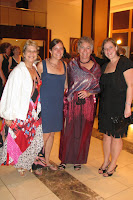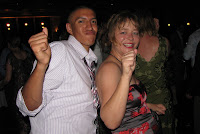(An interesting article written by a an Embassy employee for our local social-interest newsletter)
--By Javan Kajyambere
One of the defining characteristics of the Rwandan culture is their respect for hierarchy. This sometimes amazes foreigners, especially those from a western culture governed by written policies, when they hear answers like, "My supervisor told me," instead of "It is written policy."
If a Westerner asks, "Did you ask your supervisor why?" The Rwandan will always answer, "No." A Westerner asks, "Why did you leave this item there when you knew it was not the appropriate place?" And the Rwandan will respond, "My supervisor instructed me to do so."
"Does this look logical to you?" "Of course it does because my supervisor said so…." And so begins the frustrating, circular exchange. Well, to better settle out this misunderstanding, we need to know the place of the hierarchy in the Rwandan society.
In Rwanda, before and during the colonial era up to the early 1950s, the father was everything for the family. The nuclear family was the primary social, administrative and even political unit. As the head of the family, the father had the last word and his decisions were never questioned. A chief oversees many people and does not have the time to explain his decisions to his subordinates. Directives are meant to be followed, never questioned. These nuclear families formed the extended family (UMULYANGO) led by Umukuru w’umulyango (the head of the extended family). Not only the members of the extended family (200 to 300 people) were under his chiefdom but also all the activities (social events like marriages, ritual functions, economic activities and problem solving) were organized and supervised by him. The members of the family owed him strict obedience and he was expected to provide protection and maximum wealth in the form of cows and land taken from other hierarchies. It was from these chiefs of extended families that the King selected his Army chiefs, Cows’ chiefs and Land chiefs based on their leadership skills and age.
The hierarchy in Rwanda was a vertical system of management and absolute subordination. For example, if a child (or any other person within the hierarchy) disobeyed the father or chief, he or she could be banished from not only the nuclear family, but the large extensive family as well. This obedience to structure is the foundation upon which the culture of the Rwanda citizen was built. Many Kinyarwandan proverbs indicate that citizens should always do whatever the hierarchy asks. One of them is a popular saying "Irivuze Umwami." This means what the King (the boss) has said; no one else can say the opposite. Or, "Umwera uturutse ibukuru bucya wakwiriye hose" meaning low level people have to follow the examples set by the hierarchy. Unfortunately, the leader may be a blind man and when all the people follow him, they all fall in a pit.
Rwandans were and continue to be taught from childhood that they are to unconditionally respect their hierarchy, from the low level to the highest level of authority. And this culture has not completely disappeared despite the intermingling with western cultures. That’s why Rwandans will rarely call their supervisors by their names, or ask questions like why or on what basis do you give me this instruction. However, the yes response does not always mean that they agree. It sometimes means, the boss instructed, I have to obey.


 I really liked this one above- he used Acryllic and Watercolor paints. These materials are not easy to find in Rwanda.
I really liked this one above- he used Acryllic and Watercolor paints. These materials are not easy to find in Rwanda.


 News and TV crews attended the event, which I think made it extra special for these kids and their families.
News and TV crews attended the event, which I think made it extra special for these kids and their families.
 Here is US Ambassador Symington (front row), the Deputy Chief of Mission, and Jenny (who organized the event) with all of the winners.
Here is US Ambassador Symington (front row), the Deputy Chief of Mission, and Jenny (who organized the event) with all of the winners. 






















 An Irish band played mostly old school rock and roll.
An Irish band played mostly old school rock and roll.








